Iranian FM Welcomes Designation Of Ambassadors With Saudi Arabia
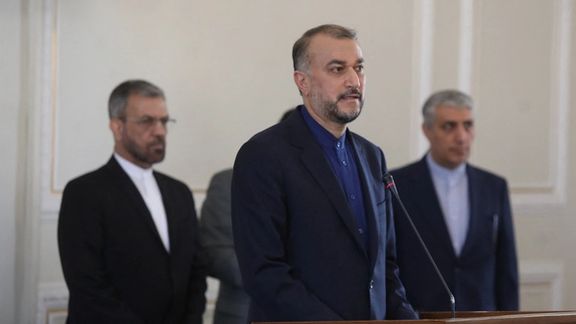
Tehran’s foreign minister has welcomed the warming relations between Iran and Saudi Arabia following their unexpected deal in March to resume relations.

Tehran’s foreign minister has welcomed the warming relations between Iran and Saudi Arabia following their unexpected deal in March to resume relations.
Foreign minister Hossein Amir-Abdollahian expressed satisfaction over the introduction of ambassadors in a phone call on Friday reported by Iranian local media.
The joint agreement between predominantly Shia Iran and Sunni Saudi Arabia brokered by Beijing sent shock waves through the region when it was revealed earlier this year after long-standing rivalry between the two states.
"The Islamic Republic has taken the necessary measures for the official opening of its embassy in Saudi Arabia," said Amir-Abdollahian.
Iran's foreign minister added that "the plans to visit the respective capitals by the foreign ministers is a sign of determination of the parties to cooperate and renew relations."
Iranian media reported that the Saudi Foreign Minister bin Farhan expressed satisfaction over the developments in line with the Beijing agreement.
In the agreement to restore relations between Tehran and Riyadh, which was inked in March with the mediation of China in Beijing after eight years of tensions between the two archrivals, it was stated that the embassies and consulates will be reopened within two months.
Upon the visit of Iran's Minister of Economy to Saudi Arabia, Riyadh on Friday introduced its new ambassador to Tehran.
Iran's Economy Minister Ehsan Khandouzi led an economic delegation to Jeddah on Thursday to hold bilateral meetings with Saudi officials and talks with the Islamic Development Bank during his stay.
He met with his Saudi counterpart, Mohammed Al-Jadaan on the sidelines of the meeting of the Islamic Development Bank.

The Group of Seven (G7) Finance Ministers and Central Banks' Governors warned about the risks posed by Iran in illicit financial activities.
The officials held a meeting in the Japanese city of Niigata on Saturday and issued a statement on pressing global economic and security issues.
"We are deeply concerned with illicit financing risk emanating from Iran," the Group stressed in their joint statement and pledged full support for the international watchdog, the Financial Action Task Force, FATF for monitoring global compliance.
FATF is a Paris-based inter-state organization following the observance of international financial rules against money laundering and financing of terrorism.
Iran and North Korea are both on FATF ‘blacklist’ for not adhering to several international financial conventions. The designation virtually cuts off the violators from the international banking system.
Iran has failed to pass legislation to comply with FATF demands and is recognized as a high-risk country for financial transactions and investments.
The Iranian regime wants to have a free hand in financing militant groups around the world, which would violate FATF’s anti-terror financing rules.
The Iranian banking system controlled by the government is opaque and mired in debt and corruption.
Even if the United States lifts its economic sanctions, Iran would still be considered a high-risk country if it does not comply with international financial rules.
The G7 officials meeting in Japan also strongly warned about North Korea and its “illicit activities” related to “Proliferation of weapons of mass destruction.”

Hossein Ta'eb, a senior adviser to the IRGC says former President "Hassan Rouhani will be tried if not today, maybe another day for his decision's during his presidency."
However, while according to Etemad Online Ta'eb insisted that Rouhani should be tried, he commented that his trial is not the establishment's immediate priority.
Several social media users commenting on the report said that Ta'eb himself should be tried for security breaches during his tenure as the head of IRGC's Intelligence Organization. He was removed from his post last year after a series of serious sabotage acts in Iran attributed to Israel and a major case of infiltration by Israel was revealed. A top security official, Alireza Akbari was subsequently hanged on charges of espionage for foreign countries.
This was not the first time Iran's hardliners call for Rouhani's trial or accuse him of pursuing accommodation with the West and for concluding a nuclear agreement in 2015.
Rouhani recently said that he would file a complaint against a hardliner member of the Supreme Council of Cultural Revolution who has accused him and his aides of espionage.
Attacks on Rouhani by hardliners escalated when he was quoted last week as having said that an agreement with the United States was at hand before he handed over the presidency to Ebrahim Raisi in 2021.
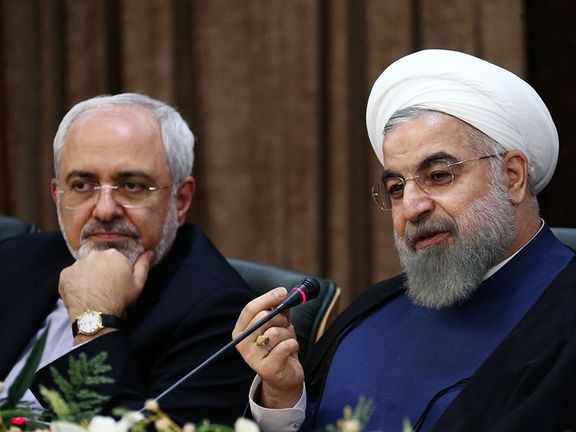
Rouhani who kept a low profile for 18 months after his presidency, began making public statements critical of the current economic and political situation in Iran and convening frequent meetings with his former aides. According to Entekhab website, which is close to Rouhani, on Friday, he said sarcastically that everyone expected Iran's problems to be solved now that a consolidated conservative government was in office.
Earlier attacks in April targeted Rouhani for suggesting a referendum on the country's key issues. Not only the hardliners in the government, but Supreme Leader Ali Khamenei lashed out at critics for the suggestion they said would undermine the regime's authority. Khamenei even went out of his way to say that the people are not knowledgeable enough to take part in referenda.
Rouhani has also criticized the current government for high inflation surpassing 50 percent and increasing poverty. He also criticized the government for barring reformist and moderate candidates from running in elections.
Some of Rouhani's allies like the former chief of the parliament's Foreign Policy and National Security Committee, Heshmatollah Falahatpisheh, say that he should have fought harder to revive the 2015 nuclear deal, the JCPOA. He said this week that détente and solving the nuclear dispute were among Rouhani's promises to the nation and he should have done more to that end.
"At least Rouhani and his aides should have explained to the nation about why the negotiations with the United States and Europe were not fruitful," Falahatpisheh added.
Meanwhile, foreign policy analyst Mehdi Motaharnia said in an interview with Rouydad24 website that what is transpiring between Rouhani and the hardliners is part of a crisis of decision-making in Iran. Motaharnia further opined that consolidating political power in Iran by handing over the whole establishment to conservatives was the regime's biggest strategic mistake.
The decision to engineer the elections and allow hardliners to form an absolute majority in parliament and win the presidency in 2020-2021, could have only come from Khamenei.
He said that the new government made "revolutionary rhetoric" the driving force of its foreign policy and brought the country face to face with a serious challenge it cannot resolve.
Referring to the tensions between Iran and the international community, Motaharnia stressed that the year 2023 is the year in which the Iranian government needs to take big and hard decisions to ensure the regime's stability.
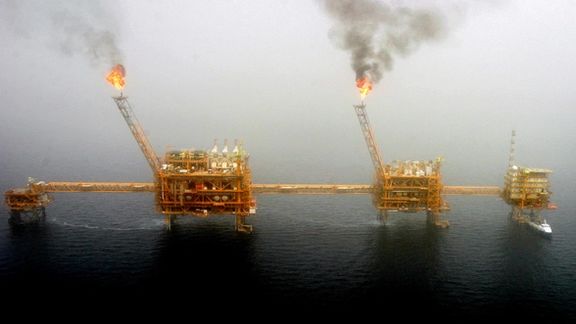
As global oil prices dropped in late April and early May, further indications emerged that embattled Iran provides large discounts to its main customer China.
Oil traders jumped into buying futures in early April after OPEC+ producers announced further oil output cuts of around 1.16 million barrels per day, in a surprise move that analysts said would cause an immediate rise in prices and the United States called inadvisable.
But as concerns about oil demand persisted throughout April, traders began to cut their losses and reversing their response to the production cuts with prices falling back in early May.
Iran’s deputy oil minister claimed on May 8 that the current government has increased production by 600,000 barrels per day in the past 20 months, but the reality is that except China Iran does not have any serious buyers willing to import large quantities in violation of US third-party sanctions.
While oil has been trading at around 75-82 dollars in the past several months, Iran International reported in December that Tehran provides huge discounts to China, charging as little as $37 per barrel.
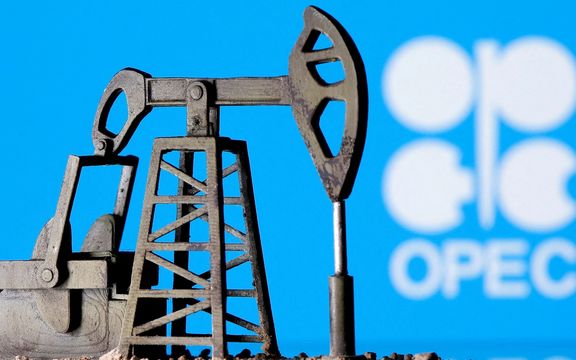
This explains the shortage of foreign currency in the government’s coffers that has halved the value of the rial since last September.
An analyst this week quoted an unnamed EU energy security source as saying that China, which already had secured a 30-percent discount from Iran before the Russian invasion of Ukraine, has demanded and received higher price cuts. Beijing already buys Russia oil at a large discount and Tehran has to sell its oil much cheaper now.
“But it is even worse for Iran, as – from 11 November 2022 - China has been paying Iran in non-convertible Yuan, that is Yuan that can only be used inside China and/or spent buying Chinese goods,” the EU source added. “Worse still is that whilst Yuan is the key instrument in payment, China is also using the currencies of Angola, Zambia and Kenya to pay Iran, and China is doing this as a means to induce Iran to buys goods from these countries so that these countries, in turn, can service their loans to China,” he argued.
If true, this is a serious setback for the Islamic Republic government which local analysts say has no serious plans to mitigate the economic crisis in Iran and reduce inflation which hovers around 50 percent.
President Ebrahim Raisi’s administration tries to impress public opinion with exaggerated statistics showing non-existent success, but critics and many people expect worse economic news in the coming months.
One latest claim of success was the visit of Iran’s oil minister to Iraq this week and the signing of agreements for joint projects. But there are no details and no financial projections announced about the cooperation promised.
Iran can hardly reap any financial benefits from similar joint projects given the enforcement of US banking sanctions that have already restricted Iranian schemes to launder money and secure hard currency in Iraq.
Iran also needs to invest more than $200 billion it does not have to rejuvenate its oil and natural gas production after decades of neglect and lack of Western technology.
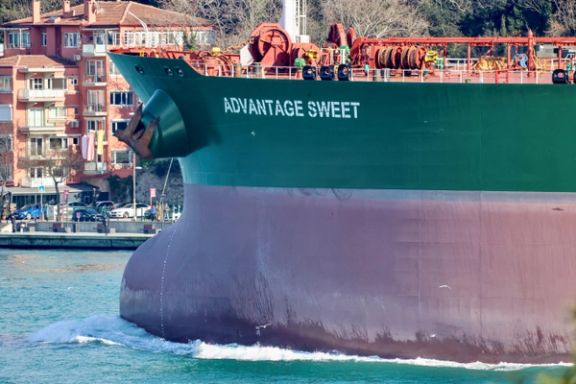
The United States will begin to bolster defensive posture in the Middle East region, White House spokesman John Kirby said on Friday.
The US made the move after destabilizing actions by the Islamic Republic this past month to interfere with and seize commercial vessels transiting the Strait of Hormuz and other strategic waterways.
“[The] United States will not allow foreign or regional powers to jeopardize freedom of navigation through the Middle East waterways, including the Strait of Hormuz,” National Security Council Coordinator for Strategic Communications John Kirby told reporters on Friday, adding that there is “simply no justification” for Iranian actions to interfere, harass or attack merchant ships.
“Today, the Department of Defense will be making a series of moves to bolster our defensive posture in the Persian Gulf. US central command will provide additional details on those reinforcements in coming days,” he continued.
The US 5th fleet will increase the rotation of ships and aircraft patrolling the Strait of Hormuz and further increase security collaboration with partners and allies, according to a US Navy statement.
“Iran’s unwarranted, irresponsible and unlawful seizure and harassment of merchant vessels must stop,” Vice Admiral Brad Cooper, who oversees US Naval forces in the region, said in the statement, adding the US is “committed to protecting navigational rights in these critical waters.”
In April, the US Navy’s Bahrain-based 5th Fleet accused Iran's IRGC of making "dangerous and harassing approaches" toward US warships in the Persian Gulf.
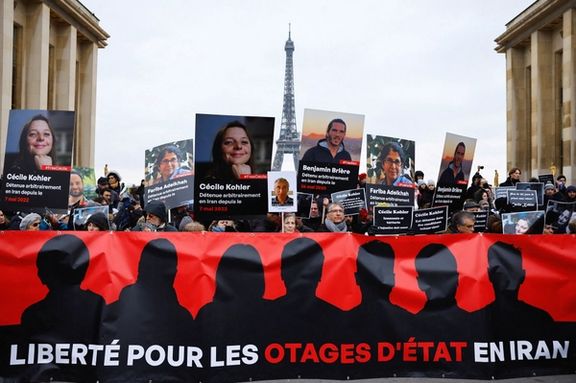
Two French citizens detained in Iran on spurious spying charges have been released and are on their way back to France.
President Emmanuel Macron announced the news on Friday that Bernard Phelan and Benjamin Brière were free, the two men among unknown numbers of diplomatic hostages held by the regime. "We will continue to work towards the return of those of our fellow nationals who are still detained in Iran," Macron said in a tweet.
French Foreign Minister Catherine Colonna spoke to her Iranian counterpart Hossein Amir Abdollahian, a few hours earlier.
Ties between France and Iran have deteriorated in recent months. Tehran had detained seven French nationals in what Paris described as arbitrary arrests equivalent to state hostage-taking.
The statements were released a day after the twitter account of Iran’s embassy in Dublin announced the release of Franco-Irish citizen Bernard Phelan who was earlier sentenced to 6.5 years in prison for "providing information to another country."
Benjamin Brière was sentenced to eight years in prison on spying charges. He had been held in Iran since May 2020, when he was arrested after flying a remote-controlled mini helicopter used to obtain aerial or motion images near the Turkmenistan-Iran border.
Philippe Valent, his France-based lawyer, called the espionage charges against his client a "fiction" and his trial "a parody staged by the Revolutionary Guard".
In the past decade, Iran's Revolutionary Guard have arrested dozens of dual nationals and foreigners, mostly on unproven allegations of espionage and breach of security, in what human rights organizations have said is essentially hostage taking.
Iran has been accused of wrongfully detaining at least a dozen foreign and dual nationals on trumped up charges, effectively as hostages to extract concessions from Western governments. However the full extent of these prisoners is unknown.